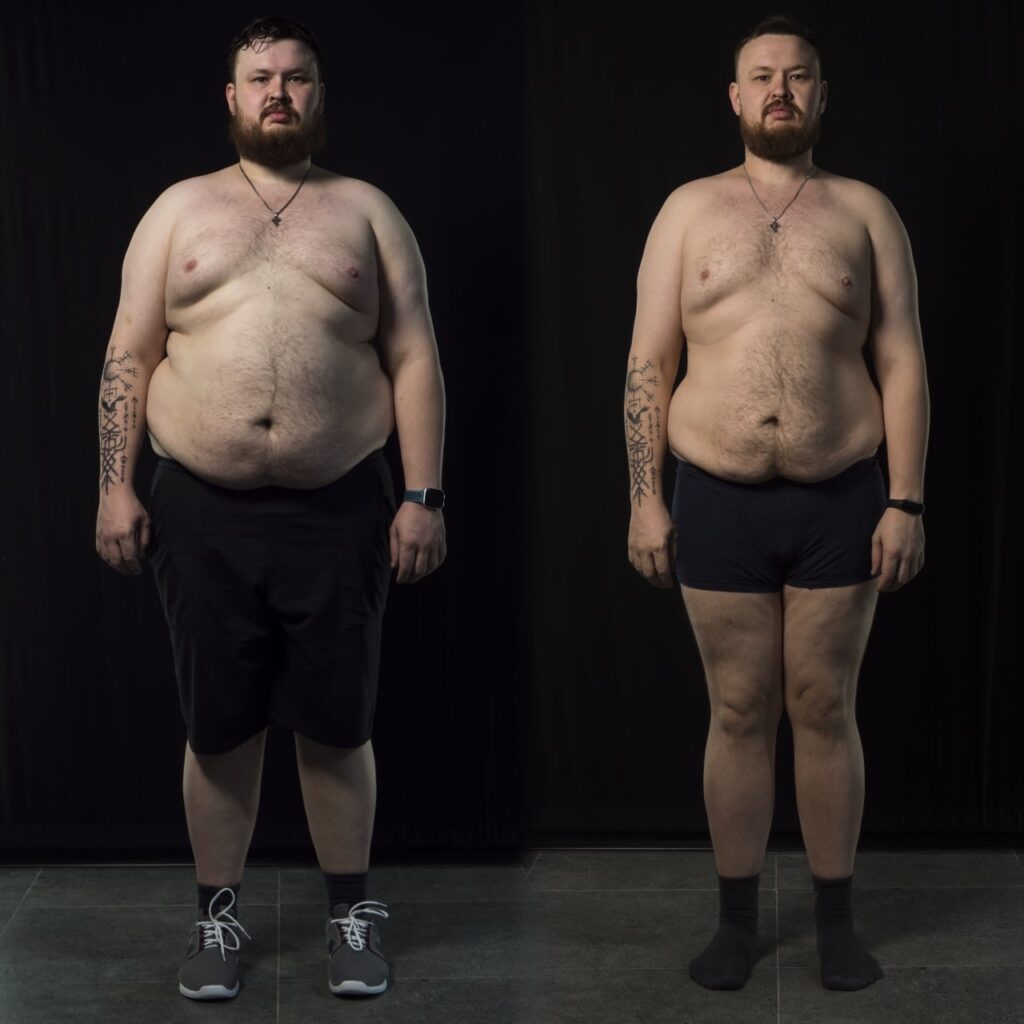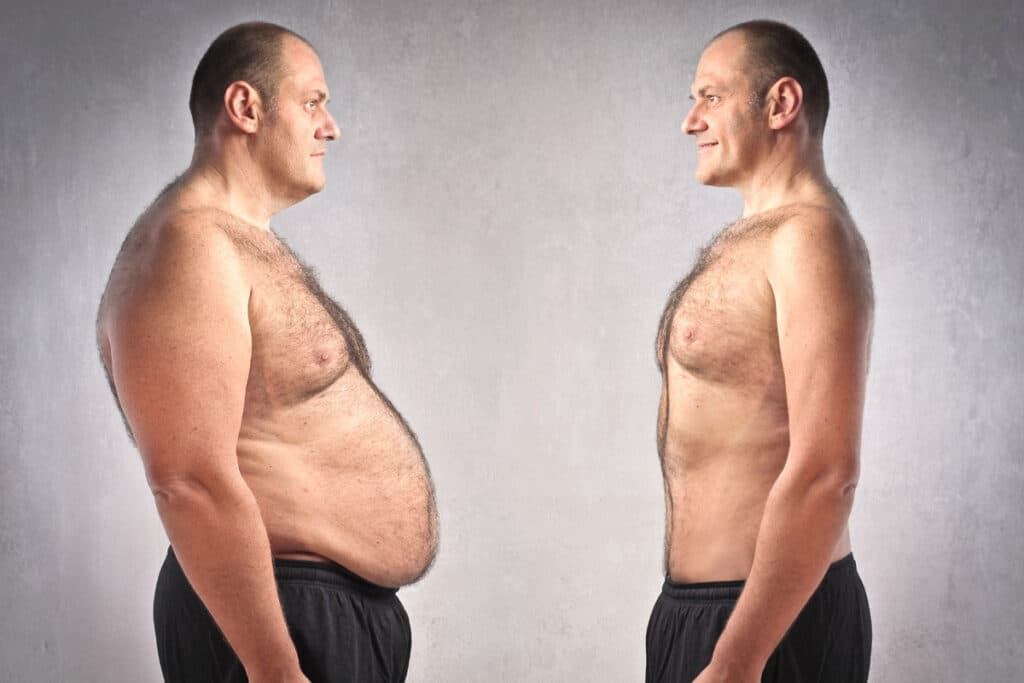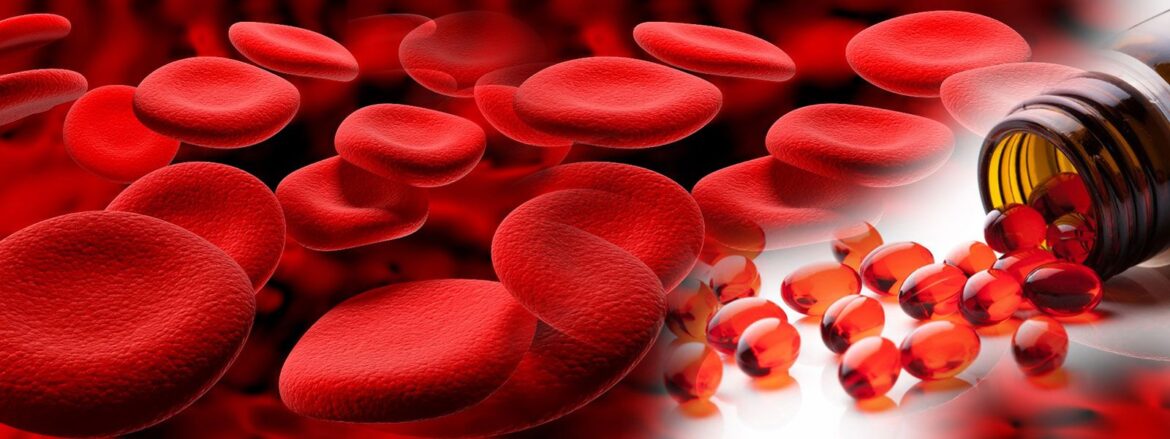Introduction
Does Iron Deficiency Cause Weight Loss: Iron deficiency is a common nutritional concern that affects millions of people worldwide. While it is well-known for its association with symptoms such as fatigue, weakness, and pale skin, there is a growing interest and debate surrounding its potential link to weight loss. Weight fluctuations can often raise concerns about underlying health issues, and some individuals may wonder if iron deficiency could be a contributing factor. In this discussion, we will explore the relationship between iron deficiency and weight loss, examining the scientific evidence, potential mechanisms, and the broader implications for overall health. Understanding this connection can shed light on the intricate interplay between nutrition and body weight, offering insights that can guide individuals on their journey to optimal well-being.
Chronic iron deficiency can trigger an inflammatory response in the body, which may have various effects on metabolism and appetite regulation. Inflammation can disrupt the body’s hormonal balance, potentially leading to changes in appetite and body weight. It’s important to note that while there is evidence suggesting a potential link between iron deficiency and weight loss, other factors can also contribute to unintentional weight loss. These factors may include underlying medical conditions, psychological factors, medication side effects, and more.
If you suspect that iron deficiency may be contributing to weight loss or are experiencing symptoms of iron deficiency, it is crucial to seek medical attention. A healthcare professional can diagnose iron deficiency through blood tests and provide appropriate treatment, which may include iron supplements and dietary changes.

Why am I losing weight?
Unintentional weight loss has many different causes. It might be caused by a stressful event like a divorce, losing a job, or the death of a loved one. It can also be caused by malnutrition, a health condition or a combination of things.
Dietary Changes
One of the most common causes of weight loss is a change in diet. If you’ve recently adopted a healthier eating plan, started portion control, or eliminated certain food groups, it’s not uncommon to shed some pounds. A balanced diet with a slight calorie deficit can lead to gradual, healthy weight loss. However, drastic dietary changes or extreme calorie restriction can be detrimental to your health.
Increased Physical Activity
Engaging in regular physical activity can lead to weight loss, especially if it’s coupled with a balanced diet. Exercise helps burn calories, build muscle, and increase metabolism. If you’ve recently become more active or have intensified your workout routine, this could explain your weight loss. However, it’s essential to ensure you’re maintaining a healthy calorie intake to support your increased energy expenditure.
Stress and Anxiety
Stress and anxiety can wreak havoc on your body, including your weight. High stress levels can lead to a decreased appetite in some individuals, while others may turn to emotional eating. Chronic stress can also lead to hormonal imbalances that affect weight regulation. If you suspect stress is contributing to your weight loss, consider seeking support from a mental health professional.
Can low blood count cause weight loss?
If you have a low red blood cell count, you may: Feel a little tired or very tired. Feel less alert or have trouble concentrating. Have a loss of appetite or lose weight.
Reduced Energy Levels
Anemia can lead to fatigue and reduced energy levels due to the decreased oxygen-carrying capacity of the blood. When individuals experience fatigue, they may become less active and engage in fewer physical activities. This decreased activity can contribute to a reduction in overall calorie expenditure, potentially leading to weight loss over time as fewer calories are burned.
Changes in Appetite
Anemia can affect appetite in various ways. Some people with anemia may experience a loss of appetite due to feelings of weakness and fatigue. This reduced food intake can result in a decrease in calorie consumption, leading to weight loss. On the other hand, certain types of anemia, such as megaloblastic anemia, may increase appetite, potentially causing weight gain.
Nutritional Deficiencies
Certain types of anemia, like iron-deficiency anemia, are often associated with nutritional deficiencies. These deficiencies can result from inadequate intake of essential nutrients, impaired nutrient absorption, or increased nutrient losses due to chronic bleeding (e.g., gastrointestinal bleeding). Over time, nutritional deficiencies can lead to weight loss and muscle wasting, as the body struggles to maintain its normal functions without the necessary nutrients.
Does iron deficiency cause sleepiness?
Iron plays a key role in the metabolism of monoamines in the brain thus iron deficiency leads to symptoms such as apathy, drowsiness, irritability and lack of attention occur due to impaired monoamine oxidase activity7.
Reduced Oxygen Transport
Iron is a vital component of hemoglobin, the protein in red blood cells responsible for carrying oxygen from the lungs to the body’s tissues and organs. When you have an iron deficiency, your body’s ability to transport oxygen is compromised. As a result, vital organs and tissues, including the brain, may receive less oxygen, which can lead to feelings of fatigue and sleepiness.
Restless Leg Syndrome (RLS)
Restless Leg Syndrome is a common neurological condition characterized by an irresistible urge to move the legs, often accompanied by uncomfortable sensations such as tingling, crawling, or aching. RLS symptoms are known to worsen during periods of inactivity, particularly in the evening and at night. Research has suggested a connection between iron deficiency and the development or exacerbation of RLS. The discomfort and restlessness associated with RLS can make it challenging to fall asleep and stay asleep, leading to daytime sleepiness.
Periodic Limb Movement Disorder (PLMD)
Periodic Limb Movement Disorder is another sleep-related disorder characterized by repetitive, involuntary limb movements during sleep. These movements can disrupt sleep cycles and lead to poor sleep quality. Iron deficiency has been associated with an increased risk of developing PLMD, further highlighting the link between iron levels and sleep disturbances.
Why am I eating more but losing weight?
Unexplained Weight Loss: Causes and risk factors. Losing weight without trying may indicate an underlying condition. Conditions that cause unexplained weight loss include overactive thyroid, inflammatory bowel disease, and depression.
Metabolism Variability
Metabolism plays a significant role in how our bodies utilize calories. People have different metabolic rates, and genetics can influence this variation. Some individuals have faster metabolisms, which means they naturally burn more calories even at rest. If you belong to this category, you might be able to eat more without gaining weight or even experience weight loss.
Quality Over Quantity
The types of foods you consume matter just as much as the quantity. If you’ve switched to a diet rich in whole foods, fruits, vegetables, and lean proteins, you may be eating more volume-wise but taking in fewer calories than a diet consisting of processed, calorie-dense foods. Whole foods are often lower in calories and more satiating, making it easier to maintain or lose weight.
Increased Physical Activity
An uptick in physical activity, such as engaging in regular exercise or adopting a more active lifestyle, can create a calorie deficit even if you consume more food. Exercise not only burns calories but also improves metabolism, muscle mass, and overall health. This can contribute to weight loss despite an increased food intake.
Muscle Gain
When you engage in resistance training or strength-building exercises, you can gain lean muscle mass. Muscle tissue burns more calories at rest compared to fat tissue. Therefore, as you build muscle, your body’s calorie needs may increase, allowing you to eat more while still losing weight or maintaining it.
Do iron tablets cause weight gain?
Some people also report that treatment for iron deficiency anemia has contributed to weight gain, though some research has found the opposite . “Additionally,” Gans says, “some types of anemia can cause a decrease in appetite or a change in taste, which can lead to a decrease in food intake and subsequent weight loss.”
Iron and Metabolism
Iron is not a source of calories, meaning it does not provide energy in the form of calories like carbohydrates, fats, or proteins. Therefore, taking iron supplements by itself should not directly lead to weight gain. Iron is required for the production of hemoglobin in red blood cells, which transport oxygen throughout the body. Adequate oxygen supply is essential for maintaining energy levels and overall health.
Weight Gain Due to Improved Health
Iron deficiency anemia can lead to fatigue and reduced physical activity due to decreased oxygen transport. When individuals receive iron supplementation to correct this deficiency, they often experience improved energy levels and increased activity. As a result, they may become more physically active and burn more calories, potentially leading to a healthier body weight.
Weight Gain as a Result of Iron-Related Conditions
In some cases, individuals may have underlying medical conditions that contribute to both iron deficiency and weight gain. For example, certain gastrointestinal disorders, such as celiac disease or inflammatory bowel disease, can impair nutrient absorption, including iron. These conditions may also lead to weight gain due to factors unrelated to iron supplementation.
Weight gain associated with iron tablets can also occur when iron deficiency is a secondary consequence of obesity. People with obesity may have a higher risk of developing iron deficiency anemia due to factors like inflammation, impaired iron absorption, or dietary choices. In such cases, addressing the underlying obesity-related factors may be necessary for effective long-term management.
Can B12 deficiency cause weight loss?
Conversely, some studies show that a deficiency in vitamin B12 may cause appetite loss, potentially leading to weight loss if left untreated ( 12 , 13 ). If you’re low or deficient in B12, your healthcare provider will likely recommend oral vitamin B12 supplements or injections to increase your blood levels ( 10 ).
Impaired Metabolism
Vitamin B12 is essential for the metabolism of fats, proteins, and carbohydrates. It helps convert these macronutrients into usable energy. When the body lacks sufficient B12, metabolic processes can slow down, leading to reduced energy production. This can result in fatigue, decreased physical activity, and ultimately, weight loss due to a decreased calorie intake and expenditure.
Appetite Changes
B12 deficiency can impact appetite regulation. Some individuals with low B12 levels may experience changes in taste and smell, which can lead to a reduced interest in food and a decreased desire to eat. As a result, they may consume fewer calories, leading to unintended weight loss.
Gastrointestinal Issues
B12 absorption occurs in the small intestine, and any condition that affects the absorption of nutrients in this area can lead to B12 deficiency. Conditions such as celiac disease, Crohn’s disease, or atrophic gastritis can hinder nutrient absorption, including B12. These gastrointestinal issues can also cause digestive symptoms like nausea, diarrhea, or abdominal pain, which may further reduce food intake and contribute to weight loss.
Energy Expenditure
B12 deficiency can result in anemia, characterized by a reduced oxygen-carrying capacity of the blood. When oxygen supply to the muscles and tissues is compromised, it can lead to exercise intolerance and reduced physical activity. As a consequence, individuals with B12 deficiency may burn fewer calories through physical activity, contributing to weight loss.
Can low iron stop your period?
While heavy menstrual bleeding can cause anaemia, on the flip side, there is some research to suggest that having iron-deficient anaemia can actually cause you to lose your period as well.
Iron Deficiency Anemia and Menstrual Irregularities
Amenorrhea: In some cases, severe iron deficiency anemia can lead to amenorrhea, which is the absence of menstruation for several months. When the body is iron deficient, it prioritizes the allocation of the limited available iron for critical functions, such as maintaining organ function and oxygen transport, over non-essential processes like menstruation. This can lead to a temporary cessation of periods.
Heavy Menstrual Bleeding: Conversely, heavy menstrual bleeding (menorrhagia) can contribute to iron deficiency anemia. Excessive blood loss during periods can deplete iron stores over time. It becomes a cyclical problem because low iron levels can lead to further menstrual irregularities, such as prolonged or heavy periods.
Changes in Menstrual Flow: Iron deficiency anemia may also lead to changes in menstrual flow. Some women with low iron levels may experience lighter or irregular periods, while others might have periods that are heavier or more prolonged.
Pain and Discomfort: Iron deficiency can also exacerbate pre-existing menstrual symptoms. Women with low iron levels may experience more severe menstrual cramps and increased fatigue during their periods.
Why can’t I gain weight?
The higher your metabolism, the more calories you will burn and the harder it will be to gain weight. Having a fast metabolism is often genetics – if your parents or grandparents were thin, chances are you will be too. This can also mean that you have to eat more calories than the average person to gain weight.
High Metabolism
One of the primary reasons for difficulty gaining weight is a naturally high metabolism. Metabolism refers to the rate at which your body burns calories for energy. Some individuals are genetically predisposed to have a faster metabolism, which means they burn calories more quickly than others. To counteract this, it may be necessary to consume a higher calorie intake than what is typical for the average person.
Underlying Medical Conditions
Certain medical conditions can interfere with weight gain. Conditions such as hyperthyroidism, celiac disease, gastrointestinal disorders, or diabetes can affect nutrient absorption, metabolism, and appetite. If you suspect an underlying medical issue, it’s essential to consult a healthcare provider for a thorough evaluation.
Stress and Anxiety
Chronic stress and anxiety can lead to reduced appetite and weight loss. Stress hormones, such as cortisol, can suppress appetite and cause the body to burn calories more rapidly. Additionally, anxiety and stress may contribute to disordered eating patterns, further hindering weight gain efforts.

Conclusion
Iron deficiency anemia primarily presents with symptoms like fatigue, weakness, and pale skin, and weight loss may be a secondary consequence rather than a direct cause. Furthermore, other underlying medical conditions, psychological factors, medication side effects, and lifestyle choices can significantly impact an individual’s weight.
If someone suspects that iron deficiency may be related to their weight loss, seeking medical attention is essential. A healthcare professional can conduct appropriate diagnostic tests, confirm iron deficiency, and recommend suitable treatments, such as iron supplementation and dietary adjustments.
In the broader context of health and well-being, it is vital to address any nutritional deficiencies promptly and comprehensively. Iron deficiency, if left untreated, can have detrimental effects on overall health and quality of life. Therefore, understanding the potential link between iron deficiency and weight loss serves as a reminder of the intricate interplay between nutrition, physiology, and overall wellness. Ultimately, a holistic approach to health that considers all factors contributing to weight loss is crucial for the best outcomes in terms of both physical and mental well-being.


1 comment
… [Trackback]
[…] Read More to that Topic: thefitnessblogger.com/does-iron-deficiency-cause-weight-loss/ […]